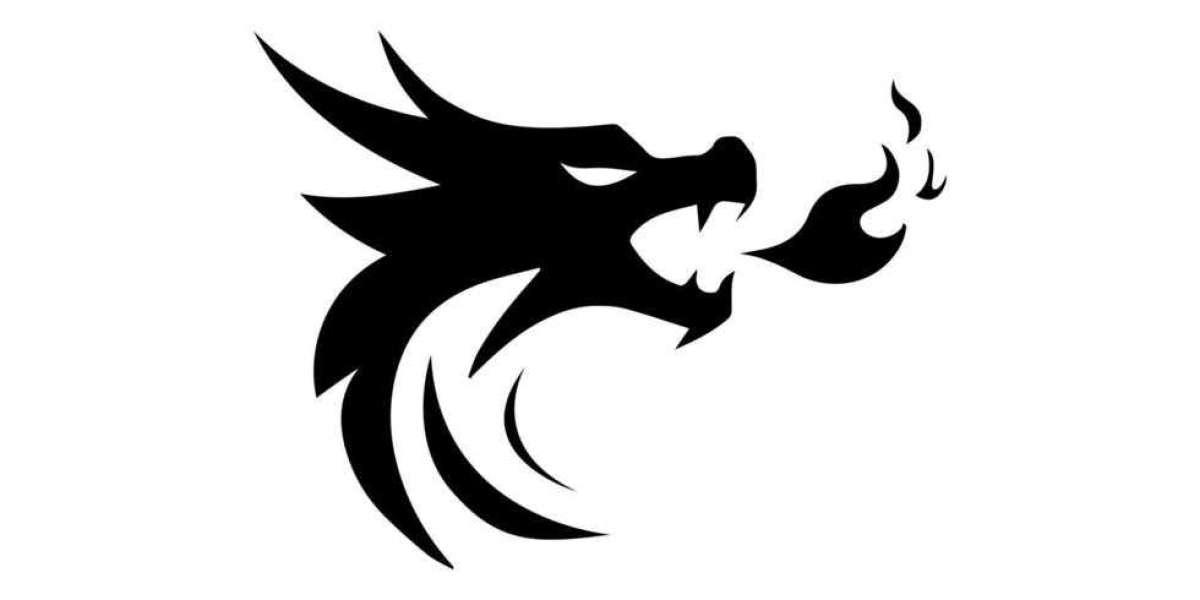The dragon symbol is one of the most powerful and multifaceted symbols in human culture. Appearing across different continents and civilizations, this legendary creature embodies a wide range of meanings, often shifting between cultures but retaining a core essence of strength, wisdom, and transformation. Dragons have captivated the imagination for centuries, not just as mythical creatures in folklore, but as symbols laden with deep spiritual, social, and philosophical significance.
The Dragon in Ancient Cultures
In various ancient mythologies, dragons have been depicted as majestic, fearsome, and sometimes benevolent creatures. Their symbolism varies greatly across different regions, but they share some common threads: power, magic, and control over natural forces.
1. Chinese Dragons: A Symbol of Imperial Power and Good Fortune
In Chinese culture, the dragon is a symbol of strength, authority, and good fortune. Revered as a divine creature, the Chinese dragon is often portrayed as a benevolent and auspicious entity that commands respect. It is associated with the Emperor of China, who was often considered the "Dragon of the East" and believed to embody the spirit of the dragon.
The Chinese dragon is typically depicted with a long, serpentine body, antlered head, and four claws. Unlike the fearsome dragons of Western mythology, Chinese dragons are generally seen as protectors and harbingers of prosperity, harmony, and good weather. In fact, the dragon is often linked with water, representing control over rivers, lakes, and rainfall, which are vital for agriculture and survival. Celebrations such as the Chinese New Year and Dragon Boat Festival continue to honor this powerful symbol.
2. European Dragons: Guardians of Treasure and Destructive Forces
In Europe, dragons have often been viewed with a more negative or fearsome light. In medieval Christian tradition, dragons are frequently depicted as destructive, hoarding treasures, and threatening kingdoms. The most iconic image in this regard is that of St. George slaying the dragon, a symbol of good triumphing over evil. Dragons in Western mythology often represent chaos, greed, and the untamed forces of nature that need to be overcome or subdued.
However, the medieval European dragon is also a symbol of strength and courage. The tale of Beowulf and other heroic legends demonstrate how slaying dragons is a rite of passage, showing that overcoming such a formidable opponent can bring honor and power. In this sense, the dragon becomes a symbol of transformation—both of the hero and of society.
3. The Dragon in Other Cultures: Diverse Meanings Across the World
Dragons are not confined to Eastern and Western traditions. In many indigenous cultures and mythologies around the world, dragons hold significant symbolic meaning.
- In the Middle East, dragons are sometimes seen as destructive serpents. The Persian "Azhi Dahaka" and the Babylonian "Tiamat" are both portrayed as serpentine dragons that bring chaos and must be defeated by gods or heroes.
- In Native American cultures, particularly those of the Pacific Northwest, mythical creatures resembling dragons are often associated with water and the spirit world. These creatures are seen as protectors of sacred places and bringers of balance in nature.
- In South Asia, particularly within Hindu and Buddhist traditions, dragons (or serpent-like beings, such as Naga) symbolize protection, fertility, and divine power. Nagas are often depicted as beings who live in bodies of water and are revered for their wisdom and connection to the elements.
Universal Themes of the Dragon
Despite the variations in dragon mythology across cultures, the symbolic meanings attributed to the dragon often reflect universal themes.
1. Transformation and Rebirth
Dragons are frequently associated with transformation. Their ability to shed old skin and emerge anew can symbolize personal growth, the shedding of old habits, or the pursuit of enlightenment. In alchemical symbolism, the dragon is a representation of the process of transformation—both physical and spiritual—that leads to the discovery of hidden truths or the realization of one’s potential.
2. Power and Control
The dragon represents immense power and mastery over the elements, often embodying both physical and mystical strength. In many cultures, dragons are seen as guardians of treasure or sacred knowledge, suggesting that with great power comes the responsibility to protect and maintain balance. Whether representing imperial authority in China or the destructive force of chaos in Europe, the dragon holds dominion over realms that others cannot control.
3. Wisdom and Knowledge
Dragons are often depicted as ancient creatures with profound wisdom and knowledge. This aspect of dragon symbolism is especially prominent in Eastern cultures, where dragons are seen as wise beings capable of imparting guidance. In the West, dragons can symbolize untapped knowledge or the need to search for deeper understanding, as heroes or adventurers often embark on quests to confront dragons and uncover hidden truths.
The Dragon in Modern Times
In modern contexts, the dragon has maintained its symbolic power, evolving into a widely recognized figure in pop culture, art, literature, and even branding. Whether in fantasy novels like J.R.R. Tolkien's The Hobbit or the Game of Thrones series, or in popular video games like Dungeons Dragons, dragons continue to embody the duality of strength and mystery.
Additionally, the dragon remains an enduring symbol in art and design, representing boldness, vitality, and creativity. It is a popular emblem for sports teams, companies, and organizations aiming to project strength and resilience.
Conclusion
The dragon, as a symbol, is one of the most potent and diverse in human culture. From the sacred and benevolent guardians of the East to the fierce and destructive forces of the West, dragons represent a wide range of values—strength, wisdom, transformation, and power. Whether seen as protectors, conquerors, or embodiments of nature’s untamable forces, dragons continue to hold a unique place in the collective imagination, bridging the worlds of myth and reality with their enduring mysticism.



